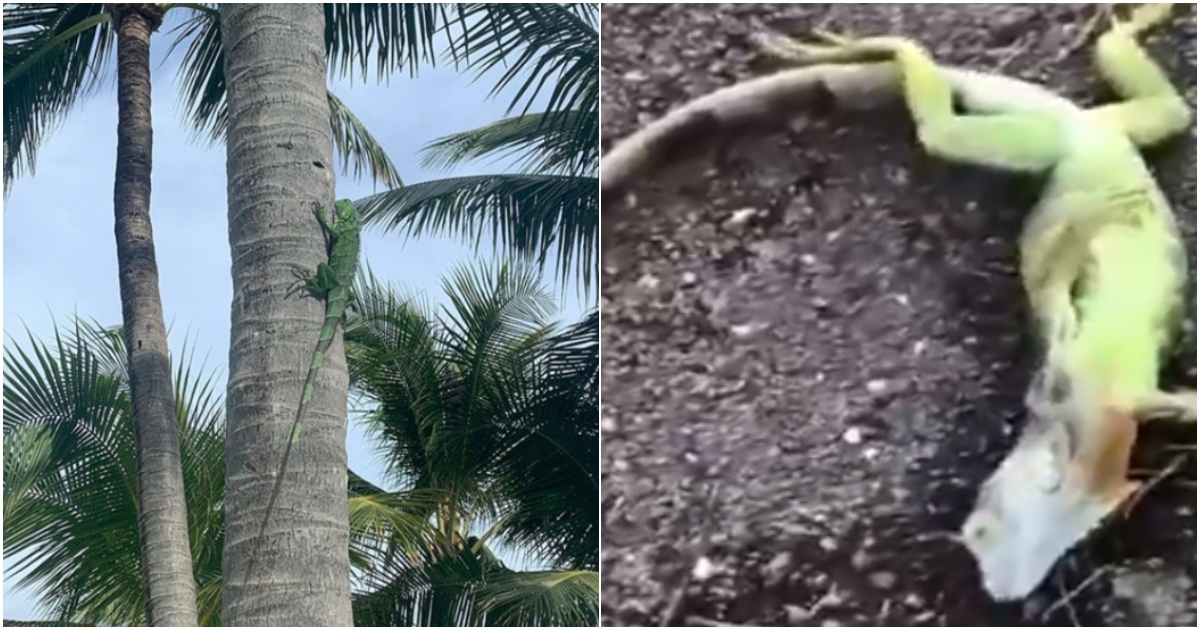
Related videos:
The Miami Weather Service (NWS) announces the falling of iguanas in Florida, a common phenomenon in the southern part of the state when temperatures drop below around 40 degrees.
"It's cold enough again to predict the falling iguanas here in South Florida. Be careful this Wednesday night,” tweeted the NWS.
“‘They are not dead,’ reports the Florida Fish and Wildlife Conservation Commission (FWC), ‘they simply become immobilized because they cannot withstand low temperatures; they are cold-blooded animals that need sunlight to move.’”
The FWC also believes that this is a good opportunity to get rid of them as they are an invasive species in Florida, where it is legal to kill them in various ways, as long as they do not suffer. "What is illegal and constitutes a crime is to drown, freeze, or poison iguanas," warns the agency.
Some Floridians have chosen to eat the meat of these reptiles, like Ishmeal Asson, who told The Sun Sentinel in 2018 that he has more than a dozen friends who eat the animal and often hunt it using nets and traps.
According to Exotic Meat Markets, a company that sells exotic meats, iguana meat is gaining popularity due to several factors: “People believe that iguana meat does many things. Its reputation among Central Americans is very good, as they see it as a cure-all for everything from colds to poor sexual performance."
FWC states that iguanas cause damage to the vegetation in residential and commercial areas and are often considered a nuisance by homeowners. They are attracted to trees with foliage or flowers, most fruits (except citrus), and almost any vegetable. Some cause damage to infrastructure by digging burrows that erode and collapse sidewalks, foundations, bulkheads, berms, and canal edges.
Iguanas were first reported in Florida in the 1960s in Hialeah, Coral Gables, and Key Biscayne along the southeastern coast of Miami-Dade County. Their populations now extend along the Atlantic coast in the counties of Broward, Martin, Miami-Dade, Monroe, and Palm Beach, as well as along the Gulf coast in Collier and Lee counties.
There have also been reports in Alachua, Highlands, Hillsborough, Indian River, and St. Lucie counties. However, it is likely that the individuals observed in the northern counties are escaped or released captive animals, and they are unlikely to establish populations, as iguanas are not cold-hardy.
Filed under:






